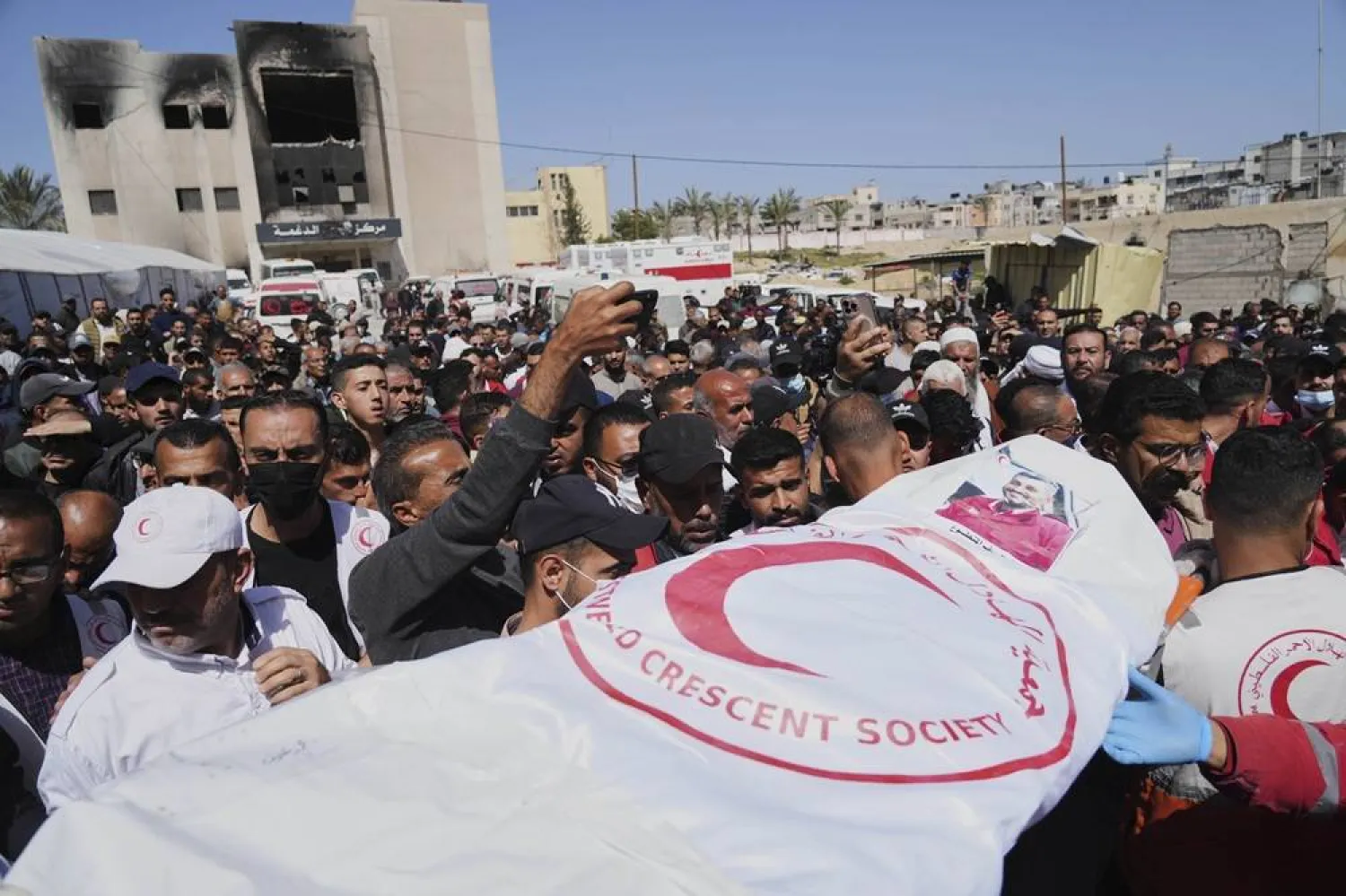The Palestine Red Crescent Society said on Monday that 15 medics and rescuers killed by Israeli forces last month in Gaza were shot in the upper body with "intent to kill".
The killings occurred in the southern Gaza Strip on March 23, days into a renewed Israeli offensive in the Hamas-ruled territory, and have since sparked international condemnation.
Younis Al-Khatib, president of the Red Crescent in the Israeli-occupied West Bank, told journalists in Ramallah that an autopsy revealed that "all the martyrs were shot in the upper part of their bodies, with the intent to kill".
He called for an international probe into the killings, which the Israeli military has separately announced it was investigating.
"We call on the world to form an independent and impartial international commission of inquiry into the circumstances of the deliberate killing of the ambulance crews in the Gaza Strip," Khatib said.
The Israeli military has said its soldiers fired on "terrorists" approaching them in "suspicious vehicles", with a spokesman later adding that the vehicles had their lights off.
But a video recovered from the cellphone of one of the slain aid workers, released by the Red Crescent, appears to contradict the Israeli military's account.
The footage shows ambulances travelling with their headlights on and emergency lights flashing.
Eight staff members from the Red Crescent, six from the Gaza civil defense agency and one employee of the UN agency for Palestinian refugee were killed in the incident.
Their bodies were found buried near the site of the shooting in the Tal al-Sultan area of Rafah city, in what the UN humanitarian office OCHA described as a mass grave.
"Why did you hide the bodies?" Khatib said of the Israeli forces involved in the attack.
Hamas has accused Israel of a "deliberate attempt to cover up the crime by burying the victims in mass graves".
- 'War crimes' -
An Israeli military official, briefing journalists over the weekend on condition of anonymity, said troops first fired at a vehicle carrying members of Hamas internal security force, killing two and detaining another.
Two hours later, at 6:00 am on March 23, the soldiers "received a report from the aerial coverage that there is a convoy moving in the dark in a suspicious way towards them" and "opened fire from far", said the official.
"The forces are not trying to hide anything. They thought they had an encounter with terrorists."
According to OCHA the first team, which it said comprised of rescuers and not Hamas fighters, was hit by Israeli forces at dawn.
In the hours that followed, additional rescue and aid teams searching for their colleagues were also struck, OCHA said.
The United Nations' human rights chief Volker Turk said last week the shootings may constitute "war crimes".
Israel has repeatedly accused Hamas of using ambulances to transport militants and weapons in Gaza, charges the group has rejected.
On Monday, Israeli government spokesman David Mencer said that the among the 15 killed were six Hamas fighters.
"What were Hamas terrorists doing in ambulances?" he said.
Khatib dismissed the accusation, saying Israel has failed "to prove even once in 50 years that the Red Crescent or its crews carry or use weapons".









